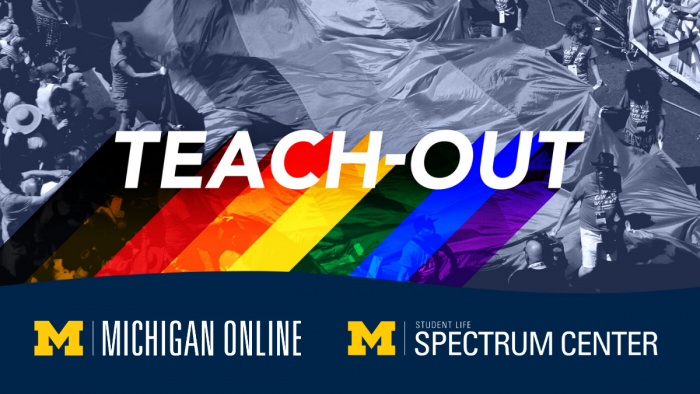
Beginning in the U.S. in the late ’60s and early ’70s, Pride was a radical claiming of space, self-affirmation, and dignity for Lesbian, Gay, Bisexual, Transgender, Queer (LGBTQ) communities. Over the past several decades, this phenomenon has begun to have a meaningful impact on society on a global scale. More specifically, in North America, Pride goes beyond a deep feeling of self-achievement. Pride is a celebration of visibility and rights for historically marginalized gender and sexual identities that also confronts tensions around capitalism, appropriation, and hegemony within the community.
The Pride Teach-Out, launching June 1, 2020, was created in order to explore the complexities of Pride as a celebratory event, a feeling of self-worthiness, and a virtual opportunity to uplift and highlight the stories of LGBTQ individuals. In our reflection on Pride, we wanted to name and explore how the themes of space, community, and representation are constructed and deconstructed within the LGBTQ community’s conceptualization of Pride. We ensured that our exploration of Pride reflected multiple voices from the community who spoke to the nuances of Pride from their own direct narratives, expertise, and scholarship.
